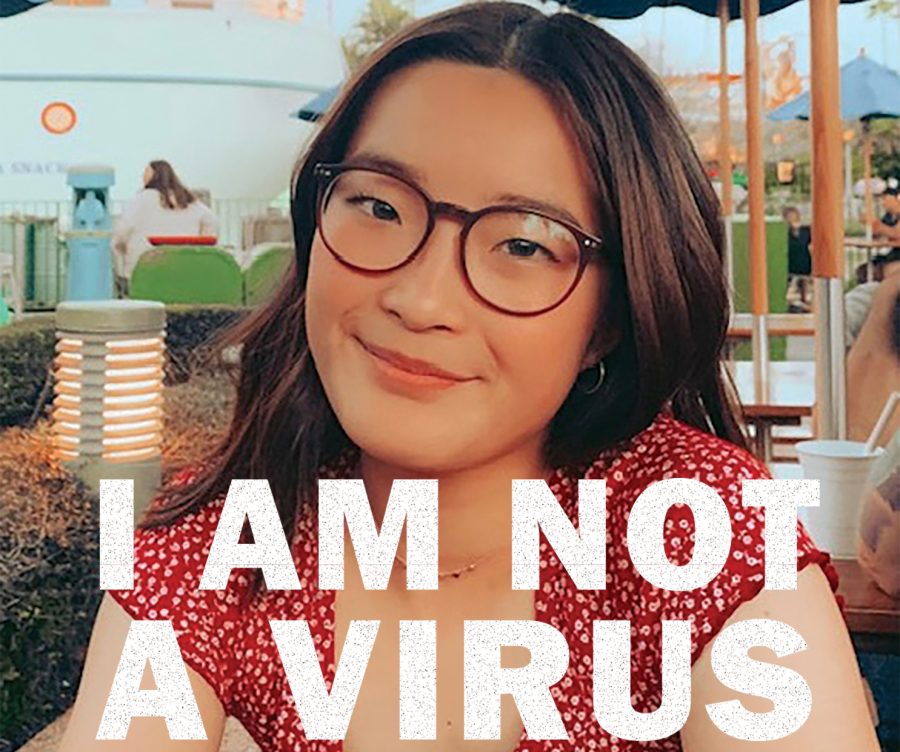I am not a virus
The coronavirus is not an excuse for xenophobia and racism.
WSS Intern Soomin Koh ’23 discusses the rise of racism towards Asians in the era of COVID-19.
It’s a Sunday afternoon, and my dad returns home with a load of groceries after a trip from the store. With a sullen look etched on his face, he sets the bags on the kitchen countertop. I ask him about his day, and he responds with nothing but a dispirited smile. After repeatedly imploring him for an answer, he replies with a puzzling question, “How can people think that it is right to see others as nothing but a virus?”
While shopping at a local grocery store, my dad had been suddenly stopped by another shopper. She stared in disgust while she approached him in a rather aggressive manner. With both arms crossed she said, “Aren’t you forgetting something? Gosh, just put on a mask.” Sadly, this interaction depicts the brutal reality of the world today as racism and bigotry towards the Asian race becomes increasingly normalized in our society.
In the past few months, a massive outbreak of COVID-19 has engulfed the globe with a wave of panic and hysteria. Originating from an initial outbreak of a respiratory disease first detected in China, COVID-19 is a zoonotic virus that is part of a large family of coronaviruses such as Middle East Respiratory Syndrome (MERS) and Severe Acute Respiratory Syndrome (SARS). As of April 9, coronavirus cases have almost reached 1.5 million around the world and surpassed 400,000 in the US alone. As this new disease spreads, so does extreme racism and discrimination towards people of Asian descent.
Starting in January, many more cases of the coronavirus had been confirmed, showing that the spread through person-to-person contact was possible. However, due to the origin of the virus and many east Asian countries being affected, social stigma and xenophobia against Asians became widespread. Although anxiety towards a new virus is normal, the extensive spread of derogatory language and hate have been popularized through racialized media coverage and social media.
The prejudice against Asians has been brutal. From America’s leading news sources such as The Wall Street Journal titling an article “China is the Real Sick Man of Asia” while explicitly targeting Chinese people to teens creating new trends mocking Asians on TikTok, the coronavirus has become many people’s justification for racist remarks.
Everyone from teenagers to the president has taken part in the xenophobia surrounding the situation. President Trump recently referred to the virus as the “Chinese Virus,” ignorantly downplaying the severity of the outbreak. While misleading and racially offensive, this label puts Asian Americans at risk of being targeted for further abuse. Blaming and falsely accusing one race as the sole cause of a pandemic should not be tolerated.
The abuse following the discrimination is not just verbal, however.
In California, a 16-year-old Asian American boy was rushed into the emergency room after being physically assaulted by his classmates who accused him of having the virus. In Illinois, a man was brutally attacked, spat on and told to “go back to China.” In New York City, a woman wearing a mask was attacked in a Manhattan subway station before being called “diseased” and beaten with an umbrella.
These racially motivated incidents targeting Asians have sparked acts of protest on various social media platforms. Viral hashtags such as #WashTheHate, #RacismIsAVirus and #IAmNotCOVID19 have been created to fight back against the hate caused by the virus. Movements such as these have gained support from people all over the world, generating empathy and increasing awareness toward the situation.
Despite social media movements advocating against these hate crimes, racist ideas have spread and these acts of violence simply cannot continue. Fear of a virus can no longer allow people to be prejudiced and hurtful, nor can it give justification for racialized media coverage to normalize hate. This only reinforces racism, a much bigger and uglier enemy. In this world of uncertainty that we find ourselves in today, it is crucial that we come together and overcome our shared hardship, not divide ourselves further.
Your donation will support the student journalists of West High School. Your contribution will allow us to purchase Scholarship Yearbooks, newsroom equipment and cover our annual website hosting costs.

(she/her) Soomin Koh is a senior at West, and it is her second year on print publication staff as a co-profiles editor. In her free time,...




